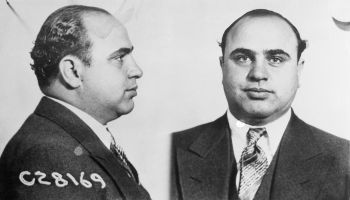VIA WASHINGTON POST:
When Kathy Patterson learned about Thursday’s D.C. Council hearing, during which Chairman Vincent C. Gray and Schools Chancellor Michelle A. Rhee pelted each other with accusations of law-breaking and secret meetings, she had one immediate reaction.
“Here we go again,” said Patterson, a former council member and chairwoman of its education committee. It looked as if another attempt at public school reform was disintegrating in a hail of recriminations and rhetoric, with Rhee destined to join Franklin L. Smith, Lt. Gen. Julius Becton, Arlene Ackerman, Paul L. Vance and Clifford B. Janey, the school leaders who preceded her in the past two decades.
It was supposed to be different this time. The 2007 legislation that disbanded the old D.C. Board of Education and gave control of the school system to Mayor Adrian M. Fenty (D) was designed to minimize the push-and-pull of ward politics, making a single executive accountable. But Thursday’s hearing vividly illustrated that no legislation can completely account for the mix of personalities who come together to execute it.
At the beginning of the last century, urban reformers wrested control of schools from mayors and established independently elected boards as a hedge against corruption. But the pendulum has swung back. Mayors from Boston to San Jose have been taking over school districts since the early 1990s, recognizing that their city’s economic growth and their political longevity are inextricably linked to the quality of the local educational system.
But few such transitions have unfolded with the kind of tumult and contention that they have in the District.
“In the first couple of years, there is usually more support than animosity between the legislative and executive,” said Brown University professor Kenneth Wong, who has studied mayoral control of school districts and testified in support of the District law. He said his research suggests that school systems under mayoral control make stronger gains in student achievement.
Behind the battles
So why has the quest for education reform in the District been so fraught with conflict?
Wong and others who have watched the effort say personal, political and structural factors make the District an unusual case. First and foremost, the city’s location in the back yard of Congress and the White House has made it a venue of choice for controversial educational experiments, such as vouchers and charter schools.
The District’s overhaul is also playing out against a dramatic generational transition in its politics. Gray, a proud shoe-leather politician from the old school who is a week shy of his 67th birthday, has mayoral ambitions and roots deep in the African American middle class, which makes up the bulk of the D.C. system’s workforce. Rhee traumatized that constituency last month when she laid off 388 school employees, including 266 teachers and staff. The layoffs touched off student protests, angry marathon hearings and a teachers’ union lawsuit that will be heard this week in D.C. Superior Court.
In Rhee, Fenty, 38, has chosen a philosophical soul mate with his passion for public policy based more in metrics and outcomes than consultation with stakeholders, critics say. Rhee told an Aspen Institute audience last year that one of the lessons she’d learned in Washington was that “cooperation, collaboration and consensus-building are way overrated.”
Other high-profile mayoral takeovers have involved seasoned urban politicians whose initial leadership choices were more conventional. Chicago’s Richard M. Daley named his budget director, Paul Vallas. In Boston, a committee appointed by Mayor Thomas Menino selected Thomas Payzant, head of the San Diego school system.
The tumult in the District reflects the pace — detractors say recklessness — with which Rhee has moved since coming from the education nonprofit group she founded after three years as a Baltimore teacher. In 28 months, she has upended almost every sector of public school operations, from school closures to classroom instruction to teacher evaluations to labor relations.
Rick Hess, director of educational policy studies at the American Enterprise Institute, said no schools leader — not even New York Chancellor Joel Klein, the former deputy attorney general and a nontraditional choice of unconventional Mayor Michael Bloomberg — has moved with Rhee’s velocity or audacity. That’s especially true, he said, in her challenge to politically influential teachers’ unions.
Hess, a Rhee supporter, said the chancellor and Fenty are attempting to bypass the political process where they can, wagering that parents will care more about the results, which include improved tests scores, and less about bruised egos at the Wilson Building.
“Traditionally, you cover your flank,” Hess said. “Instead of slowing down to protect her flank, Rhee is figuring if she can cross the bridge fast enough, she can take the opposite shore.”
Finances
Wong cited one structural issue that might be fueling discord: the council’s heavy, line-item involvement with the school budget. Legislative bodies in other districts under mayoral control are less involved in school spending decisions, he said.
The flash point at Thursday’s hearing was Rhee’s admission that she made up $9 million in budget cuts by laying off teachers rather than paring back summer school, as the council directed. The move did not violate District law, as Gray alleged. But even her most stalwart supporters on the council called it the latest in a series of politically maladroit maneuvers.
Can Rhee survive? That’s up to Fenty, who faces reelection next year. Although he’s taken a low profile in the disputes of the past few weeks, there is no evidence that he is backing away from the chancellor.
The record suggests that with a mayoral force field surrounding her, Rhee stands to be around for a while if she wants. Klein, a mentor, has been on the job for seven years; Payzant lasted nearly 11. In Chicago, Vallas and his successor, Arne Duncan, now secretary of education, lasted six and seven years, respectively.
Patterson, who has watched school heads come and go like Washington Football Team coaches, said she likes Rhee’s chances but wants her to build more of a political base of her own. “Not just for self-protection, but to help make sure that reforms are grounded and have community support.”
Rhee said in an interview Friday that she would redouble her efforts to work more effectively with the council. “I have to continue to be really diligent in figuring out the best way to communicate,” she said. But she added that the recent tensions have not changed her views about the prospects for success in the District.
“At the end of the day, everybody wants the same thing,” she said. “Nobody wants to go back and do things the way they were done.”
- Algeria: Entertainment, Food, Languages, Places To Visit + More
- Sudan: Entertainment, Food, Languages, Places To Visit + More
- Egypt: Entertainment, Food, Languages, Places To Visit + More
- South Sudan: Entertainment, Food, Languages, Places To Visit + More
- Tunisia: Entertainment, Food, Languages, Places To Visit + More














